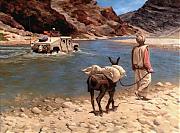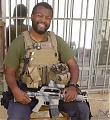I was briefed twice in Afghanistan on evolving IED tactics and technologies - all on the SIPR/high side. So yes, there is a significant amount of collection and dissemination going on within the military. Plus you have the JIEDD guys, the Assymetric Warfare group, etc...working to develop new TTP's against IED's.
The thing I haven't seen - other than John's book and some research I've been doing for my Master's degree - is how the enemy is targeting infrastructure in order to produce chaos. Most of this is open source available, and it's very interesting to see what is being targeted, why it's being targeted and how certain targets actually help fund the insurgency - such as oil trucks being hijacked and power line stantions being melted down into ingots and then resold as scrap.











Bookmarks